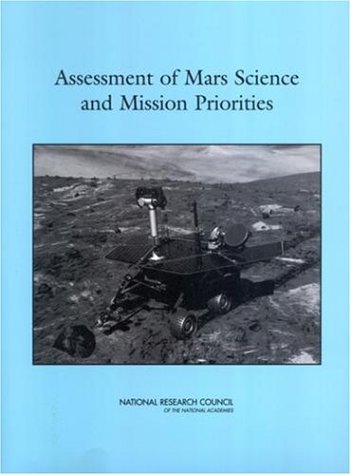

Most ebook files are in PDF format, so you can easily read them using various software such as Foxit Reader or directly on the Google Chrome browser.
Some ebook files are released by publishers in other formats such as .awz, .mobi, .epub, .fb2, etc. You may need to install specific software to read these formats on mobile/PC, such as Calibre.
Please read the tutorial at this link: https://ebookbell.com/faq
We offer FREE conversion to the popular formats you request; however, this may take some time. Therefore, right after payment, please email us, and we will try to provide the service as quickly as possible.
For some exceptional file formats or broken links (if any), please refrain from opening any disputes. Instead, email us first, and we will try to assist within a maximum of 6 hours.
EbookBell Team

4.4
72 reviewsWithin the Office of Space Science of the National Aeronautics and Space Administration (NASA) special importance is attached to exploration of the planet Mars, because it is the most like Earth of the planets in the solar system and the place where the first detection of extraterrestrial life seems most likely to be made. The failures in 1999 of two NASA missions—Mars Climate Orbiter and Mars Polar Lander—caused the space agency's program of Mars exploration to be systematically rethought, both technologically and scientifically. A new Mars Exploration Program plan (summarized in Appendix A) was announced in October 2000. The Committee on Planetary and Lunar Exploration (COMPLEX), a standing committee of the Space Studies Board of the National Research Council, was asked to examine the scientific content of this new program. This goals of this report are the following:
-Review the state of knowledge of the planet Mars, with special emphasis on findings of the most recent Mars missions and related research activities;
-Review the most important Mars research opportunities in the immediate future;
-Review scientific priorities for the exploration of Mars identified by COMPLEX (and other scientific advisory groups) and their motivation, and consider the degree to which recent discoveries suggest a reordering of priorities; and
-Assess the congruence between NASA's evolving Mars Exploration Program plan and these recommended priorities, and suggest any adjustments that might be warranted.